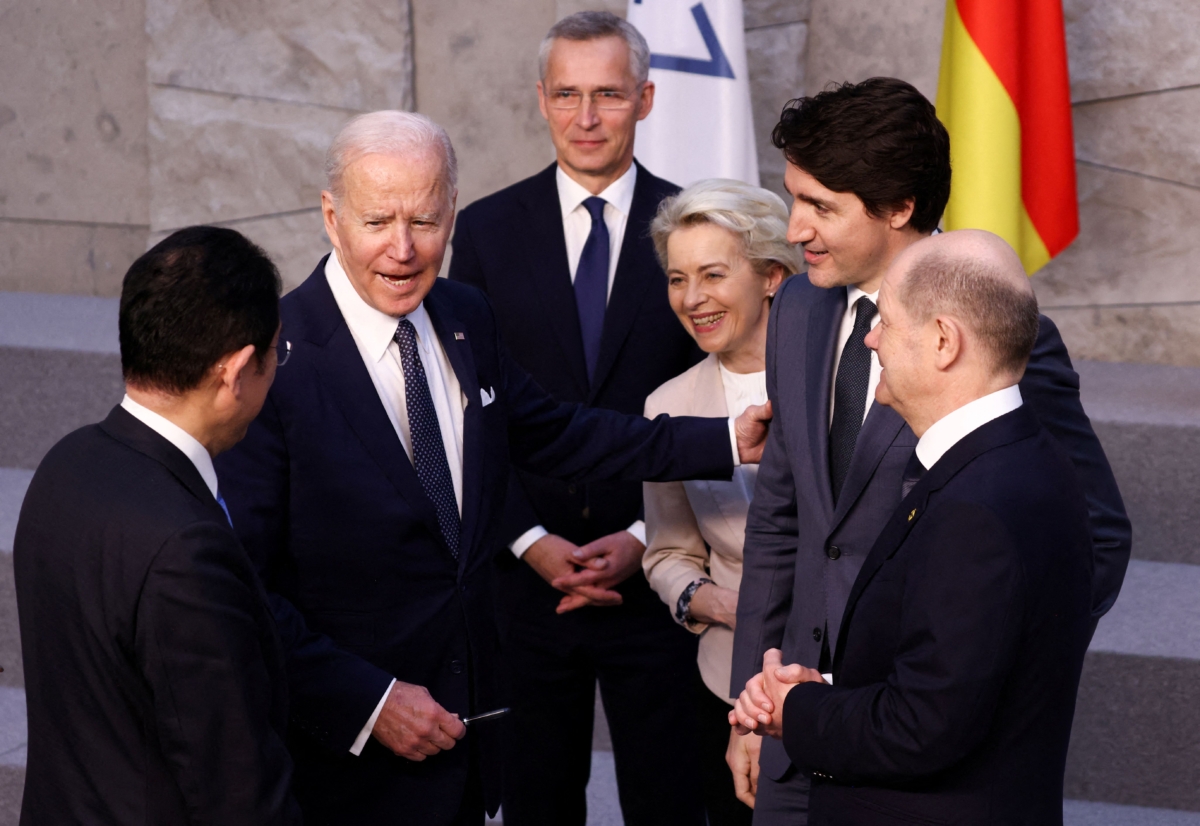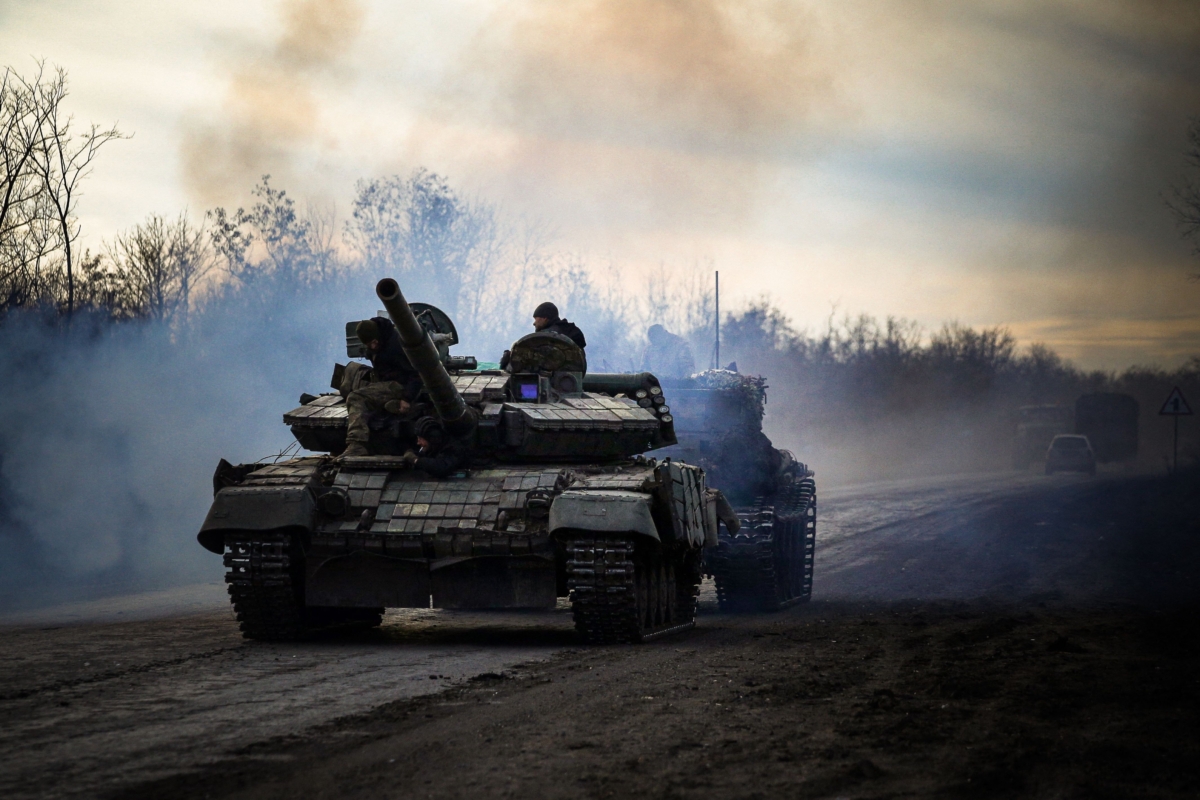


Major U.S. allies responded negatively to Washington’s decision to send cluster bombs to Ukraine, with some citing the danger of such weapons to civilians while others pointing to international treaty violations.
Cluster bombs release a large number of smaller bombs, referred to as bomblets, which can kill indiscriminately over a large area. On Friday, the United States announced that it will send such bombs to Kyiv. German foreign minister Annalena Baerbock said that Berlin opposes Washington’s decision. “I have followed the media reports. For us, as a state party, the Oslo agreement applies,” she told reporters on Friday, Reuters reported.
The Oslo agreement Baerbock referred to is the Convention on Cluster Munitions (CCM) agreement signed by 111 nations in Oslo, Norway, in December 2008. The convention prohibits the use, production, transfer, and stockpiling of cluster munitions. The United States, Ukraine, and Russia are not party to the CCM.
The Canadian government expressed its disapproval of Washington’s plan on Saturday. “We do not support the use of cluster munitions and are committed to putting an end to the effects cluster munitions have on civilians—particularly children,” the government said in a statement to CTV News.
“Canada is fully compliant with the Convention and we take seriously our obligation under the Convention to encourage its universal adoption.”
Speaking to reporters on Saturday, UK Prime Minister Rishi Sunak said that his country is a “signatory to a convention which prohibits the production or use of cluster munitions and discourages their use,” according to BBC.
The governments of Spain and New Zealand have also opposed sending cluster bombs for use in the Ukraine war. New Zealand was one of the nations that had pushed for the creation of the CCM.
In his July 7 remarks announcing the U.S. decision to send cluster bombs to Ukraine, national security adviser Jake Sullivan justified the move by arguing that not doing so would endanger Kyiv even more.
“So, the bottom line is this, we recognize the cluster munitions create a risk of civilian harm from unexploded ordnance … This is why we deferred the decision for as long as we could,” he said.
“But there is also a massive risk of civilian harm if Russian troops and tanks roll over Ukrainian positions and take more Ukrainian territory and subjugate more Ukrainian civilians. Because Ukraine does not have enough artillery.”
In a July 8 tweet, Democrat presidential candidate Robert F. Kennedy Jr. slammed the Biden administration’s decision.
“Last year, WH Press Secretary Jen Psaki called the use of cluster bombs a ‘war crime.’ Now, President Biden plans to send them to Ukraine. Stop the ceaseless escalation! It is time for peace,” he said.
“Biden was opposed to cluster bombs In 1982 as well, when he opposed their sale to Israel. What happened to his conscience?” he added.
“These munitions scatter bomblets across the landscape. Many fail to explode—until children pick them up later. They have caused thousands of injuries and deaths to civilians,” he said in another tweet.
Ukraine has welcomed the U.S. decision to send over the munitions to Kyiv. In a July 8 tweet, Oleksii Reznikov, Ukraine’s minister of defense, said that the weapons will “significantly help us to de-occupy our territories while saving the lives of the Ukrainian soldiers.”
“Our position is simple—we need to liberate our temporarily occupied territories and save the lives of our people,” Mr. Reznikov stated.
“For this, we need to inflict losses on the enemy—war criminals, rapists, and looters—who are occupying our territories. The more losses we inflict on them, the more lives of Ukrainian people we will be able to save.”
Mr. Reznikov promised that while Ukraine will use the cluster weapons, it will continue to “strictly comply” with all international humanitarian conventions that Kyiv has signed and ratified.
He pointed out that Russia has been “indiscriminately” using cluster munitions since day one of the ongoing conflict. In February-March 2022, Ukraine’s second largest city Kharkiv, with a population exceeding a million, was “relentlessly bombarded” using cluster munitions by the Russian forces, he said.
Mr. Reznikov vowed to only use cluster munitions for “de-occupation” and not in any “officially recognized territory of Russia.” He also said that these weapons will not be used in urban areas.
A strict record of the use of the munitions will be maintained, he said, adding that once the de-occupation is achieved, Ukraine will prioritize the cleaning up of unexploded cluster munitions per such records.
A major concern regarding cluster munitions is that once they are launched, not all the bomblets explode immediately. Many can end up embedded in the region, only to explode later on.
In August last year, the Landmine and Cluster Munition Monitor released a report stating that 97 percent of all cluster munition casualties are “after-action” civilians. In the surveys where the age of victims were registered, 66 percent were found to be children.
A July 6 report by Human Rights Watch said that both Ukrainian and Russian forces have used cluster munitions in the ongoing war, leading to the deaths and serious injuries of civilians.
“Cluster munitions used by Russia and Ukraine are harming civilians now and will leave bomblets behind that will continue to do so for many years,” the organization said.
“Both sides should immediately stop using cluster munitions and not seek to obtain more of these indiscriminate weapons. The US should not transfer cluster munitions to Ukraine.”

